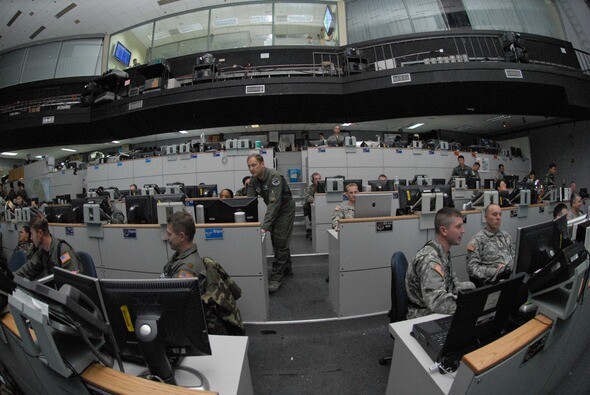hankyoreh
Links to other country sites 다른 나라 사이트 링크
How will North Korea react to Pres. Park’s lack of policies or proposals?

President Park Geun-hye’s reiteration of Seoul’s standard North Korea policy at the New Year’s press conference on Jan. 12 is raising questions about how Pyongyang will react to the absence of new policies or proposals for inter-Korean relations.
Park’s remarks at the press conference are drawing particular attention because South and North generally use the new year as a chance to make efforts towards dialogue, with different ideas exchanged on possible meetings.
With Park failing to come forward with any surprise proposals for relieving the strain on ties, North Korea may find itself in a deeper quandary than before. From Pyongyang’s perspective, the confirmation that Seoul hasn’t moved in its standard positions on lifting the May 24 Measures blocking trade raises questions about what can be expected from inter-Korean dialogue. At the same time, it also finds itself in an awkward position in terms of simply ignoring Seoul’s dialogue offers.
The situation has some analysts predicting a strong possibility that North Korea will wait and see how things unfold for now rather than taking immediate action. Its potential responses are also constrained by the South Korean and US military’s upcoming Key Resolve military exercises, which are scheduled for early March. North Korea, which has maintained that “practice for war and dialogue cannot take place simultaneously,” has made recent calls to halt the exercises.
Another factor limiting Pyongyang’s options is the memory of early last year, when it agreed to Seoul’s proposal for divided family reunions, only to see relations slide even further downhill.
“North Korea is framing the military exercises as a major issue, where it’s proposing an exchange of a temporary halt to the exercises for a moratorium on nuclear tests,” explained Kim Chang-soo, chief of research at the Korea National Strategy Institute. “President Park‘s press conference didn’t produce anything that would help steer us past this issue.”
“For now, it doesn‘t look like many options are left for either side except self-justification and psychological battles,” Kim lamented.
But Park also hinted that the scattering of propaganda leaflets in North Korea may be prevented out of concern for the safety of South Korean residents in the area, an effort at paving the way for dialogue that may leave some room for North Korea to respond.
A Ministry of Unification official also responded on Jan. 13 to Pyongyang’s recent demands for Seoul to articulate its position on “unification by absorption” by saying, “This administration, like past administrations, supports the idea of incremental, step-by-step unification based on principles of autonomy, peace, and democracy.”
“Our administration is not pursuing the kind of ‘unification by absorption’ that North Korea is claiming,” the official stressed.
University of North Korean Studies professor Yang Moo-jin predicted that Pyongyang may agree to working level talks on family reunions and other issues “if the Ministry of Unification shows good faith by developing a specific action plan on the leaflet distributions.”
By Park Byong-su, senior staff writer and Son Won-je, staff reporter
Please direct questions or comments to [english@hani.co.kr]

Editorial・opinion
![[Editorial] Does Yoon think the Korean public is wrong? [Editorial] Does Yoon think the Korean public is wrong?](https://flexible.img.hani.co.kr/flexible/normal/500/300/imgdb/original/2024/0417/8517133419684774.jpg) [Editorial] Does Yoon think the Korean public is wrong?
[Editorial] Does Yoon think the Korean public is wrong?![[Editorial] As it bolsters its alliance with US, Japan must be accountable for past [Editorial] As it bolsters its alliance with US, Japan must be accountable for past](https://flexible.img.hani.co.kr/flexible/normal/500/300/imgdb/original/2024/0417/6817133413968321.jpg) [Editorial] As it bolsters its alliance with US, Japan must be accountable for past
[Editorial] As it bolsters its alliance with US, Japan must be accountable for past- [Guest essay] Amending the Constitution is Yoon’s key to leaving office in public’s good graces
- [Editorial] 10 years on, lessons of Sewol tragedy must never be forgotten
- [Column] A death blow to Korea’s prosecutor politics
- [Correspondent’s column] The US and the end of Japanese pacifism
- [Guest essay] How Korea turned its trainee doctors into monsters
- [Guest essay] As someone who helped forge Seoul-Moscow ties, their status today troubles me
- [Editorial] Koreans sent a loud and clear message to Yoon
- [Column] In Korea’s midterm elections, it’s time for accountability
Most viewed articles
- 1Samsung barricades office as unionized workers strike for better conditions
- 2[Column] The clock is ticking for Korea’s first lady
- 3[Editorial] When the choice is kids or career, Korea will never overcome birth rate woes
- 4Why Israel isn’t hitting Iran with immediate retaliation
- 5[News analysis] After elections, prosecutorial reform will likely make legislative agenda
- 6S. Korea, Japan reaffirm commitment to strengthening trilateral ties with US
- 7Japan officially says compensation of Korean forced laborers isn’t its responsibility
- 8[Editorial] As it bolsters its alliance with US, Japan must be accountable for past
- 9[Editorial] Does Yoon think the Korean public is wrong?
- 10[Guest essay] How Korea turned its trainee doctors into monsters